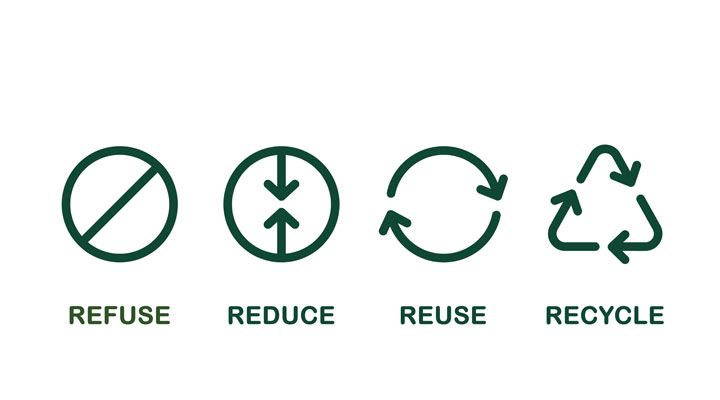Study by Jindal School Researcher Offers Retailers Insights into Sales-Promotion Strategies
Study by Jindal School Researcher Offers Retailers Insights into Sales-Promotion Strategies
by Jimmie Markham

When judiciously implemented by retailers, Buy-One-Get-One-Free (BOGOF) promotions can effectively increase profits and reduce waste.
So concludes a study by Dr. Dorothée Honhon, a professor in the Operations Management Area at the Naveen Jindal School of Management, and her co-author, Dr. Qi Wu from Case Western Reserve University. The paper — “Don’t Waste That Free Lettuce! Impact of BOGOF Promotions on Retail Profit and Food Waste — was published in the February 2023 issue of Production and Operations Management, one of the 24 peer-review academic journals featured in The UTD Top 100 Business School Research Rankings™.
Honhon said the study fits within the broader context of her research, which studies food waste. Tesco, the large British grocery chain, had begun running BOGOF promotions on perishable foods like cabbage. Since most people would eat only about one head of cabbage each week, the promotion had the unintended effect of increasing food waste at the household level.
“There was a pushback with lawmakers,” she said. “They were saying that it was ‘morally repugnant’ for Tesco to run BOGOF promotions on perishable food because it was encouraging people to buy too much food, which led to waste.”
Because of the criticism, Honhon said, Tesco switched to a promotion that they called “BOGOF Later,” in which the shopper would buy one head of cabbage and receive a coupon for a free head the following week. This promotional mechanism staggered the consumption of perishable items over two weeks instead of putting it into a single week.
“Promotionally speaking, it was good because it gave them good press that they were trying to fix the problem,” she said. “And people saw that they were coming up with a better type of promotion, better adapted to perishables.”
Honhon, whose area of expertise is in modeling rather than data collection, developed a model to capture the effectiveness of BOGOF compared to BOGOF-later promotional approaches. The paper describes which method maximizes Tesco’s profit and which one minimizes waste.
“What we found was intuitive,” she said. “BOGOF induces more participation because it’s more effective of a promotion mechanism. And it pushes a lot of merchandise, so it helps the store liquidate inventory. It’s a good option if they happen to be overstocked. It can happen because of supply chain uncertainties or because of disruptions caused by COVID-19, for instance. In such cases, it’s not such a bad thing to run a BOGOF-type promotion.”
Consumers might waste some of the sold products, but overall waste, i.e., across stores and households, could be less, Honhon said. The BOGOF-later campaign is not as effective at boosting sales because it requires more effort from shoppers who must remember to bring their coupons; however, it has the advantage of increasing return patronage from consumers seeking to redeem their coupons.
“One-third to 40 percent of the perishable food produced in the U.S. ends up not being eaten,” she said. “Depending on the product, a lot more of it is from retail waste instead of consumer waste. There’s not a single retailer I’ve talked to who doesn’t think waste is a high priority.”
Supply-chain and sustainability issues were not a part of this study, but Honhon said those factors motivate her work.
“Food waste is bad for three reasons,” she said. “Financially, ethically and environmentally. Financially, lots of money is lost on food waste. On the ethical dimension, it’s a shame to have to throw away food when there are hungry people. The last one is the environmental dimension because all the food, if it doesn’t get eaten, most of it goes to a landfill, and it contributes to methane emissions, which is one of the worst, if not the worst, gas for climate change. So any time you can make sure that food is not wasted (donated or composted instead), you prevent these emissions that negatively impact the climate.”
Honhon said her research has led her to a point where she can connect it to actions in which concerned consumers can participate, namely by doing what she calls the 4 R’s.

“First, refuse free stuff that you know you’re never going to use,” she said. “Second, reduce, that is, eliminate or lower unnecessary consumption. Third, reuse products either for their original purpose or some creative new function, and fourth, recycle. That one is a last resort. If I end up recycling, it’s because I failed at doing the first three things.”